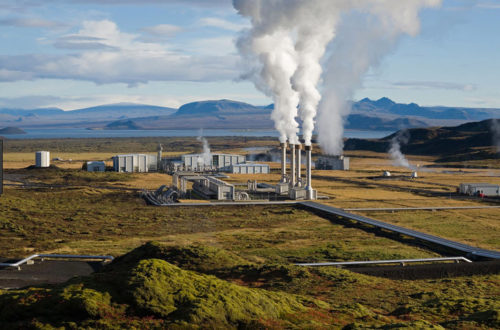Costs to dispose of coal combustion products (CCP), including fly ash, coal ash, and boiler slag, continue to rise in the utility sector, but there are many financial and environmental benefits to converting this waste into marketable end-use products.
 Enhanced EPA regulations imposed on power plants require various levels of on-site air pollution control to make air emissions cleaner. What comes out of the air, however, goes into the solid waste, which is costly to dispose of and contributes significantly to landfills. Several other facets must be factored into disposal costs such as transportation and regulatory requirements. It is for these reasons that a growing number of utility companies are turning this costly by-product into a source of revenue.
Enhanced EPA regulations imposed on power plants require various levels of on-site air pollution control to make air emissions cleaner. What comes out of the air, however, goes into the solid waste, which is costly to dispose of and contributes significantly to landfills. Several other facets must be factored into disposal costs such as transportation and regulatory requirements. It is for these reasons that a growing number of utility companies are turning this costly by-product into a source of revenue.
Fly ash and bottom ash can be used to produce road base materials, manufactured aggregates, flowable fills, structural fills, and embankments. Coal ash is also used to replace natural materials in the production of portland cement. Other applications for CCPs include wallboard manufacturing, roofing tiles and shingles. CCPs are also used for waste stabilization, snow and ice control, soil modification, as mineral fillers, in agriculture and mining and for very specialized uses. For example some CCPs have properties suitable for metal castings in the aerospace and automotive industries.[1]
While CCPs are not classified as hazardous, they do require processing so they can be converted to a more manageable and stable pellet form to be used in the applications listed above. Relatively recently, high-intensive mixers manufactured by Lancaster Products have been used to pelletize fly ash for use across a growing number of beneficial applications.
The term “beneficial use” was coined by the U.S. EPA to emphasize recycling CCPs rather than disposing of these materials in landfills. The EPA considers industrial materials recycling a “national priority.”[2]
 There are many types of mixing technologies that facilitate the conversion of raw waste into beneficial end-use products, but not all power plants use the same pollution control technologies, so the CCPs vary from plant to plant. It is for this reason that Lancaster Products provides both mixing equipment and technical expertise to provide a complete solution to its customers. The Lancaster Products K Series mixer is the ideal machine for CCP mixing, allowing for consistent, repeatable mixes. The K series mixer typically uses less water and shorter mixing times than conventional mixing technology. In addition to providing equipment, Lancaster Products specialists work hand-in-hand with its customers to determine the optimal formulation for their processing needs. Typically, the process begins with a 2,000 gram sample of ash processed to pellets to determine the appropriate formulation. After the mix design is determined on a K1 lab mixer, a larger test using 1,500 pounds of sample material is then produced on a K3-K5 mixer to confirm the end product meets the customer’s specifications and can be taken directly into a production environment.
There are many types of mixing technologies that facilitate the conversion of raw waste into beneficial end-use products, but not all power plants use the same pollution control technologies, so the CCPs vary from plant to plant. It is for this reason that Lancaster Products provides both mixing equipment and technical expertise to provide a complete solution to its customers. The Lancaster Products K Series mixer is the ideal machine for CCP mixing, allowing for consistent, repeatable mixes. The K series mixer typically uses less water and shorter mixing times than conventional mixing technology. In addition to providing equipment, Lancaster Products specialists work hand-in-hand with its customers to determine the optimal formulation for their processing needs. Typically, the process begins with a 2,000 gram sample of ash processed to pellets to determine the appropriate formulation. After the mix design is determined on a K1 lab mixer, a larger test using 1,500 pounds of sample material is then produced on a K3-K5 mixer to confirm the end product meets the customer’s specifications and can be taken directly into a production environment.
With each beneficial-use option, the pelletizing or ash management company develops an appropriate sampling and analysis protocol to suit the end-use market. The protocol has to ensure compliance with state and federal regulations and may have to be modified once final pellet production begins. The next step is to work with the appropriate state regulatory agency to obtain a beneficial use determination (BUD) permit for the product followed by pelletization production.
This is a great example of engineering a brilliant economic solution to what had until recently been a negative financial expense imposed by the greater good of pollution control. Not only do power plants benefit, but end-users are rewarded with lower cost alternative materials available for sourcing. For example, material utilized as a lightweight aggregate may be valued at $25-$35/ton compared to $45-$55/ton typically found for comparable, alternative aggregate. Furthermore, the benefits go beyond economics as greenhouse gases are reduced, landfill space is reduced, and less fossil fuels are consumed from not having to mine the raw materials.
Call 1-800-447-7351 or email us to talk to a Lancaster Products Representative today to discuss how a Lancaster Mixer can convert your coal combustion products into marketable end-use products.
[1] American Coal Ash Association (ACAA) Website, https://www.acaa-usa.org/About-Coal-Ash/CCP-FAQs
[2] American Coal Ash Association (ACAA) Website, https://www.acaa-usa.org/About-Coal-Ash/CCP-FAQs


